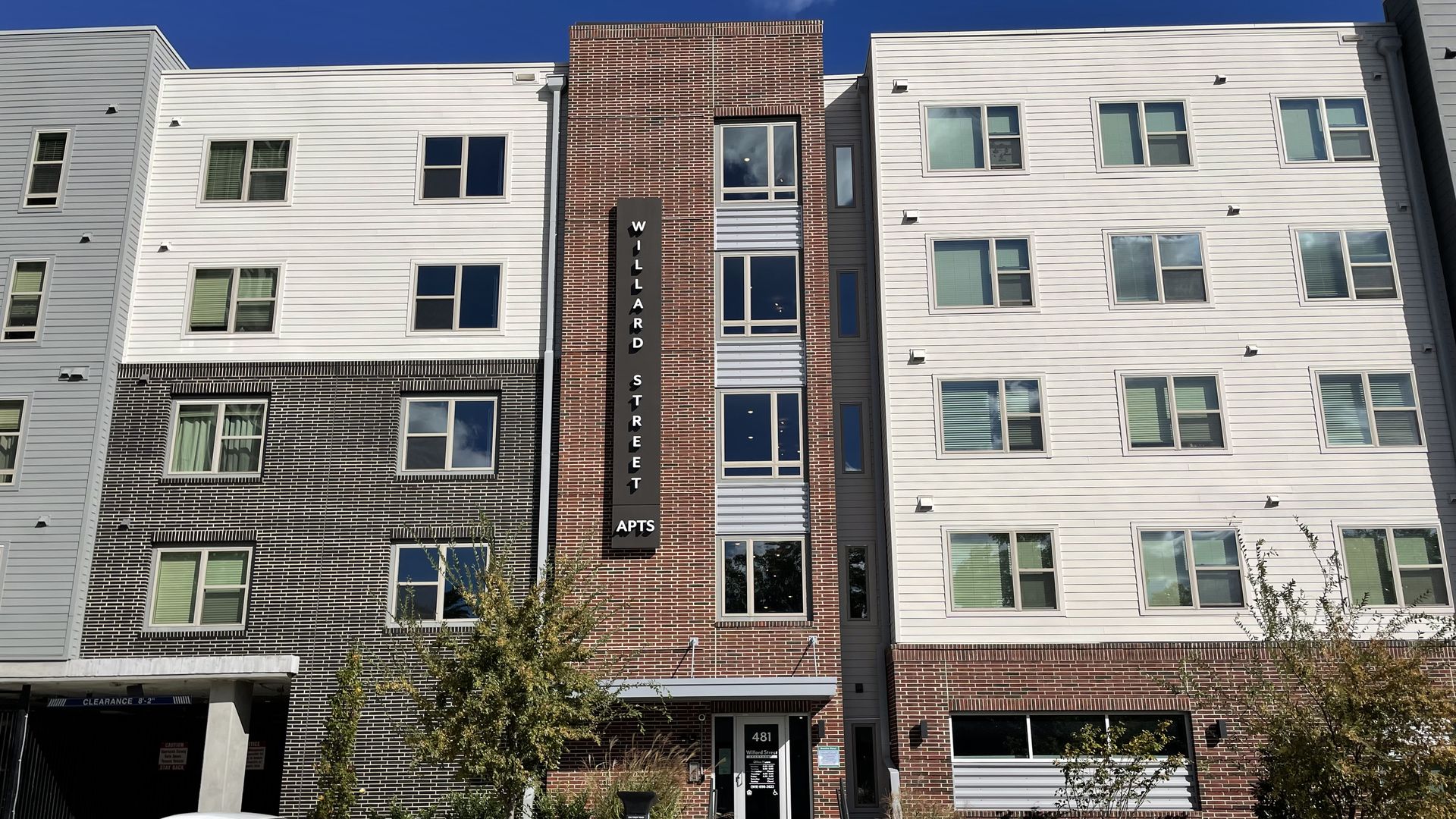The Triangle's affordable housing targets
Add Axios as your preferred source to
see more of our stories on Google.

The Willard Apartments in downtown Durham. Photo: Zachery Eanes/Axios
In the past few years, Triangle leaders have made ambitious plans to add affordable housing to their cities to combat rising rents and a rapidly growing population.
What's happening: "We've had some cities take more action than they've ever taken and do historically big things for them," Samuel Gunter, CEO of the N.C. Housing Coalition, told Axios. "And yet it's still not enough."
- One study by the United Way of the Capital Area pegged Raleigh's affordable housing shortage at nearly 20,000 rental units. The number is large, but the nonprofit reported it was actually better than most large cities.
Why it matters: Rising rents push low-income residents out of town and push some of the most vulnerable residents into precarious situations.
- Wake County has seen a dramatic increase in homelessness in the past year, Axios previously reported.
- Several Durham neighborhoods have witnessed large drops in Black population as those neighborhoods have become hot commodities for buyers, Indy Week reported.
Zoom in: Raleigh aims to create or preserve 5,700 affordable units in the city by 2026.
- Durham's goal is 2,400 units.
- Cary passed a housing plan last year and has more than 200 units under construction. And Wake Forest is in the process of drafting a housing affordability plan.

Raleigh and Durham have also increasingly tried to leverage zoning requests and public-owned land to add affordable housing.
- The city of Durham, for example, donated land next to its transit center for the creation of the Willard Apartments, which opened last year and has 82 affordable units.
- That project only got off the ground thanks to an award of $9 million of low-income housing tax credits. Those tax credits are extremely competitive to get and often prevent many projects from getting off the ground.
Gunter said the surging home prices of the last few years has made affordable housing more of a priority than it was in the past.
- "The reason folks are paying attention is because cost burden is creeping further and further up the income ladder into the middle income range," he said.
What's next: Raleigh's next big affordable housing decision will be what to do with land it owns around Moore Square, like the parking lot at 225 East Davie St., which it hopes to sell to fund more affordable housing.

